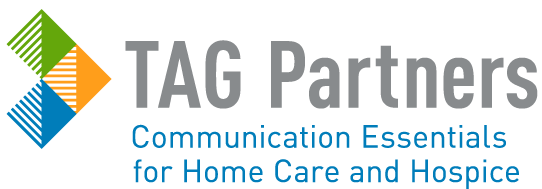Increase your physician referrals by marketing your CMS Home Health Compare scores. There is an excellent home health marketing tool available through CMS that many agencies are not utilizing. CMS’s Home Health Compare site provides potential patients and referring physicians a published track record of how your agency’s performance stacks up to the competition. Physicians want to refer patients to proven home health agencies, so naturally promoting your above average compare scores is an excellent way to boost referrals.
The five quality measure questions under the patient care category:
Managing daily activities
Managing pain and treating symptoms
Preventing harm
Preventing unplanned hospital care
Payment and value of care
Your agency may not excel in all measures, but you can highlight areas where you do excel and work on the areas where your team is falling behind the state and national averages.
Let’s look at the preventing harm questions, and what a low score in this home care basic might be an indication of:
1. How often the home health team began their patients’ care in a timely manner? This question generally rates a high score by most patients surveyed. A score less than 94% could be an indication that patients are waiting extended periods of time for their home health nurse, or that the actual nursing visit is too brief; both indicate overscheduling and/or understaffing. (National Average 94.8%)
2. How often the home health team taught patients (or their family caregivers) about their drugs? A less than 98% score to this question indicates a review of best practices on medication education and the amount of time staff nurses are spending on the subject. (National Average 98.4%) https://journals.lww.com/nursing/Fulltext/2018/05000/Improving_patient_medication_education.16.aspx
3. How often patients got better at taking their drugs correctly by mouth? National scores on this question are lower. This task can be complicated as some patients may have a progressive condition that inhibits swallowing, such as esophageal or oropharyngeal dysphagia. Speech therapists can work with patients who struggle with oral medication. If your agency does not offer speech therapy, you may want to consider doing so to improve your score on this question. (National Average 68.5%) https://www.mayoclinic.org/diseases-conditions/dysphagia/symptoms-causes/syc-20372028
4. How often the home health team checked patients’ risk of falling? A less than 99% score on this question could indicate an insufficiency in OT staffing, or overscheduling of therapists and/or nursing staff. (National Average 99.6%)
5. How often the home health team checked patients for depression? A less than 97% score on this question could indicate the need for more social work involvement between care teams. (National Average 97.5%) https://journals.lww.com/homehealthcarenurseonline/FullText/2016/07000/Depression_in_Home_Based_Care__The_Role_of_the.3.aspx
6. How often the home health team made sure that their patients have received a flu shot for the current flu season? National Average scores are a little lower on this question as many people have strong opinions about immunizations. However, this score can be boosted by making sure to question the patient in the presence of a family member or caregiver, and by educating them about the vaccine. (National Average 78.6%) https://www.cdc.gov/flu/prevent/misconceptions.htm
7. How often the home health team made sure that their patients had received a pneumococcal vaccine (pneumonia shot)? The national average fares a bit better for the pneumonia vaccine score. Patients often refuse the vaccine because they believe they have had it or they don’t need it. This score can be boosted by making sure to question the patient in the presence of a family member or caregiver, and by educating them about the vaccine. (National Average 81.7%) https://www.cdc.gov/vaccines/vpd/pneumo/public/index.html
8. For patients with diabetes, how often the home health team got doctor’s orders, gave foot care, and taught patients about foot care? These are routine tasks that home health nurses should include in their care of a diabetic patient. A less than 97% score on this question could indicate overscheduling of nursing staff and/or adequate training. (National Average 97.9%) https://www.netprintmanager.com/public/edit_print.asp?idCart=6392001000726124597963
9. How often physician-recommended actions to address medication issues were completed timely? A less than 92% score on this question indicates the need to review best practices regarding staff communication and accessibility to current patient information. Consider introducing Transition Care Management to your referring physicians. TCM will likely improve communication, bridge gaps in care, and improve HHC scores. (National Average 92.9%) https://www.tagwebstore.com/transitional-care-management.php
Reviewing your agency’s scores should be a routine part of your continuous improvement program. Superior patient care and satisfaction are both firm foundations to build your business on. Your above average scores can translate to referrals, and we offer a referral building tool to highlight them. Visit https://tagwebstore.com/ or call us at 866-232-6477 for more information



